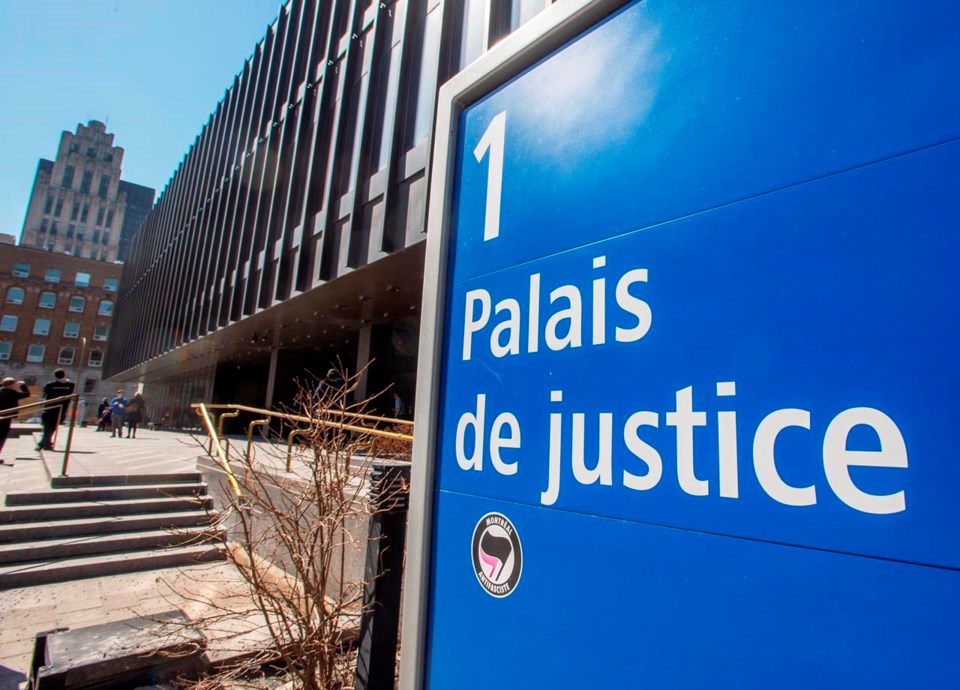MONTREAL — Quebec’s ban on prayer rooms in public schools is harmful to Muslim students and should be suspended immediately, lawyers for a civil liberties group and a Muslim advocacy organization told a Montreal court Tuesday.
The Canadian Civil Liberties Association and the National Council of Canadian Muslims argued before the Quebec Superior Court for a stay of the province's decree while their legal challenge against the ban makes its way through the courts.
Stephen Brown, the CEO of the Muslim organization, told reporters before the hearing that since the ban was introduced in April, students have been threatened with disciplinary measures for praying at school. He said his organization has heard from a student who was allegedly mocked by a teacher for trying to find a place to pray.
"We're here today so that no child has to find a place to hide to pray at school," Brown said. "No child should have to hide who they are because they're afraid of being watched, threatened or mocked by school administrators and teachers for having done nothing more than being who they are."
When Quebec Education Minister Bernard Drainville barred schools from making space available to students for prayer, he said students would still be allowed to pray silently and discreetly. But Olga Redko, a lawyer for the two groups, told the court that Muslim prayers require physical action.
"They can't just simply close their eyes and pray silently," she said.
The case was brought on behalf of a 16-year-old Muslim student at a Montreal-area high school who had been given a place to pray during the lunch hour but lost that accommodation following Drainville's decree. The student's identity is protected by a publication ban. Sworn statements have also been entered into evidence from three other Muslim students who say they also lost the ability to pray at school.
Johanna Mortreux, another lawyer for the groups, said the decree has made those students feel isolated and rejected.
In a statement from one of the students that Mortreux read aloud in court, the student said, "we are being sent the message that we are a lost cause and don't even want to be seen on school grounds."
The ban violates students' freedom of religion, equality rights and their dignity, Mortreux told the court, adding that school is supposed to be like a second home for students. Asking them to leave school property to do something as fundamental to their identity as practise their religion causes significant harm, she said.
Éric Cantin, a lawyer for the provincial government, told the court that he appreciated that it's easier for students to pray at school then to be required to leave the property. However, he said, the restriction is a minor inconvenience.
Schools are still able to offer other reasonable accommodations to religious students, he said, including to give them time off for religious holidays.
Quebecers have supported the removal of all forms of religion from public schools since the Quiet Revolution of the 1960s, Cantin argued, and it's that desire for secular schools that motivated the ban — and the reason why suspending it would be contrary to the public interest.
"The public interest, therefore, is the Québécois concept of the secularization of schools," he said. "We don't want manifestations of religion in public schools."
Lucie Roy, a lawyer for the Marguerite-Bourgeoys school service centre, which oversees the school the 16-year-old plaintiff attends, told the court that while the decree forbids schools from providing places to pray and bars students from praying in an overt way, it does not specify the consequences for violating the rule. Students who pray in school would be asked to stop but they won't be disciplined for simply praying, Roy said.
Redko argued that the harm caused by the prayer space ban is exacerbated because young people are legally required to attend school. But Roy countered that all the students whose statements were entered into evidence are old enough that they won't be forced by law to attend classes in the fall.
In response, Redko said it was "shocking" that students would be made to chose between exercising their right to practise their religion and their right to education.
Justice Lukasz Granosik said he expected to render his decision Wednesday morning.
The suit is one of two seeking to have the ban declared unconstitutional; another challenge was filed May 18 by five Muslim organizations.
This report by The Canadian Press was first published June 13, 2023.
Jacob Serebrin, The Canadian Press



